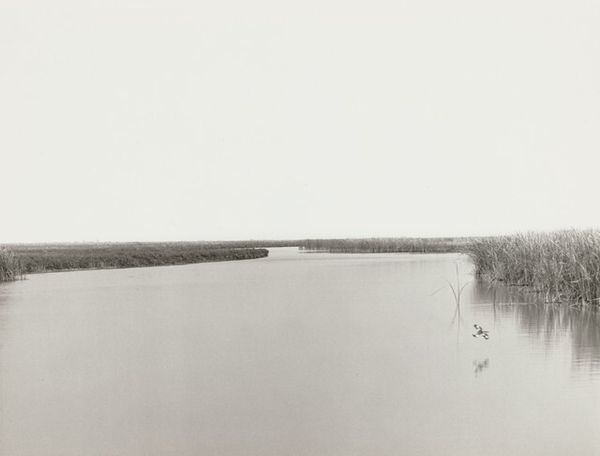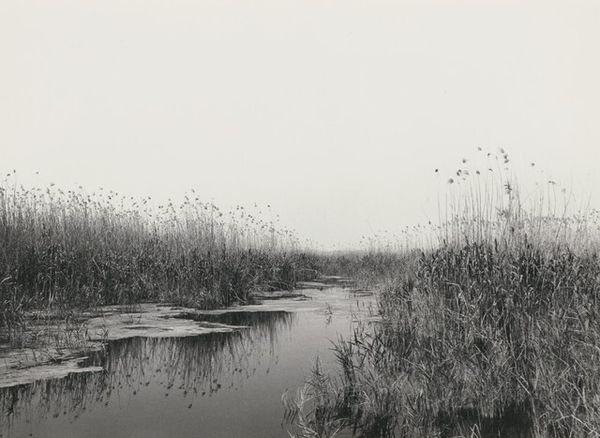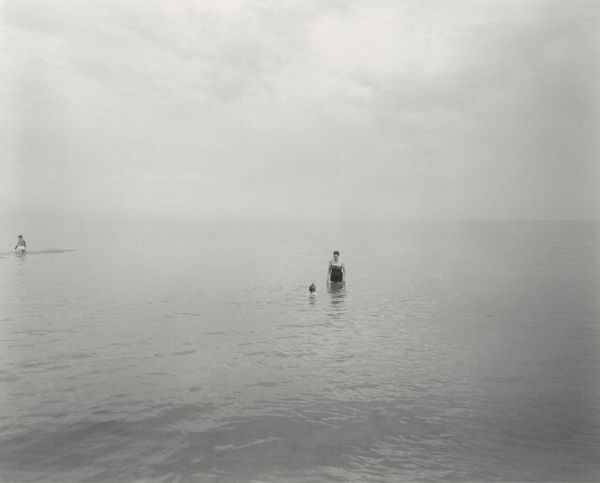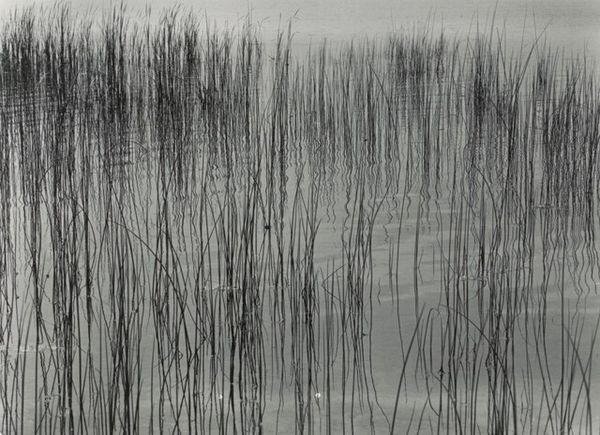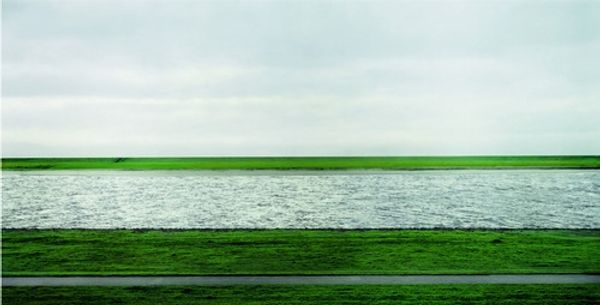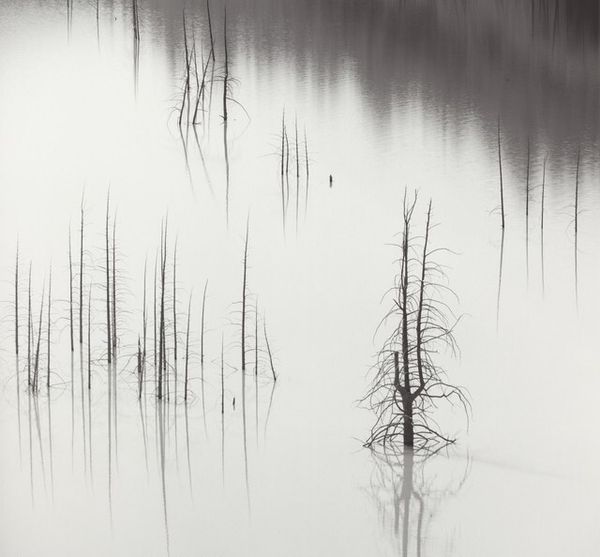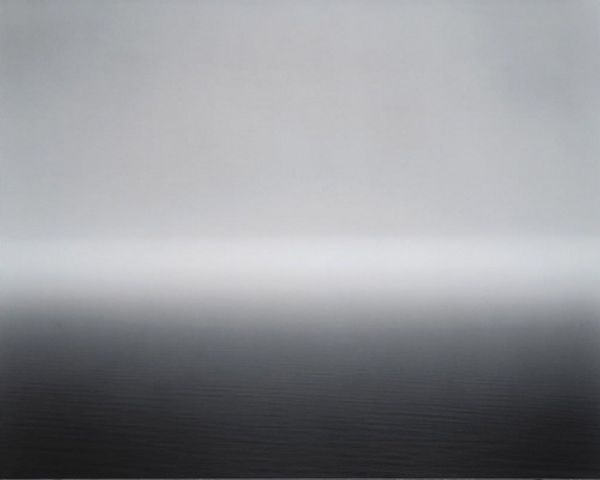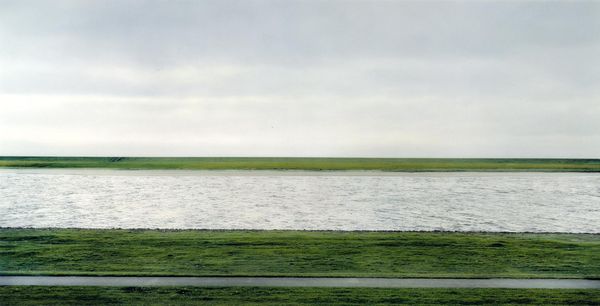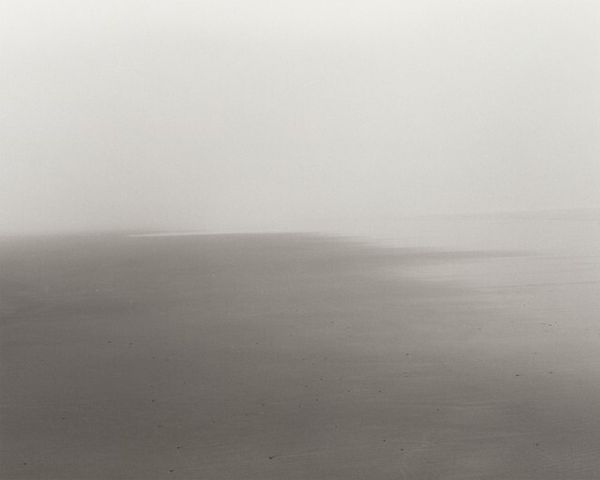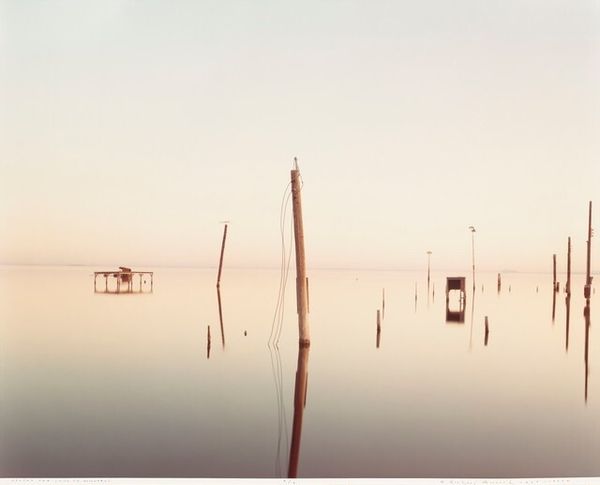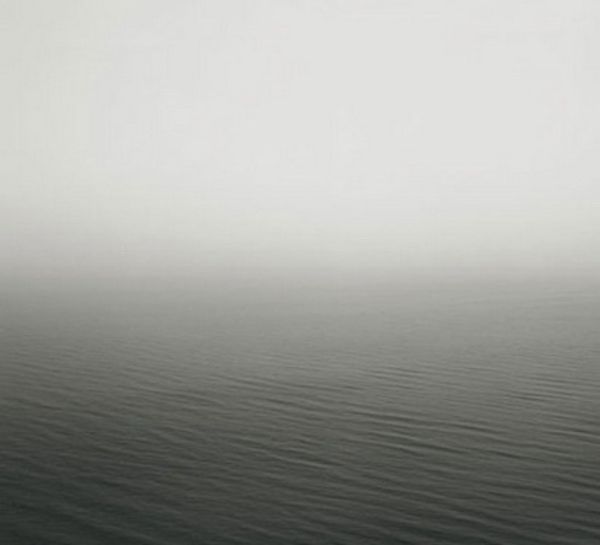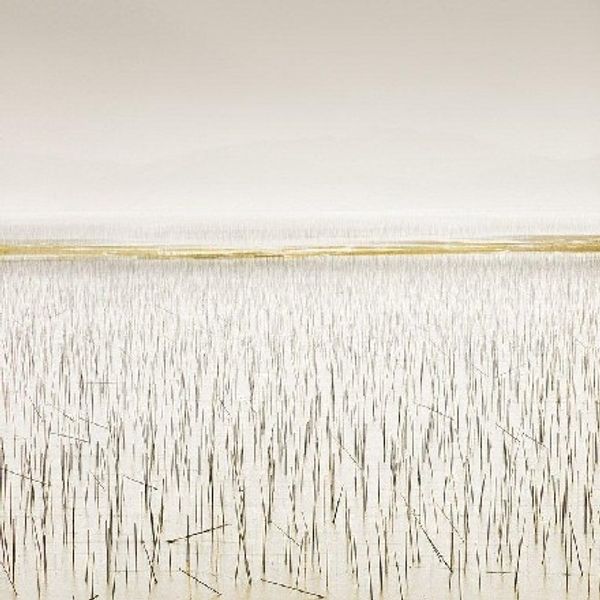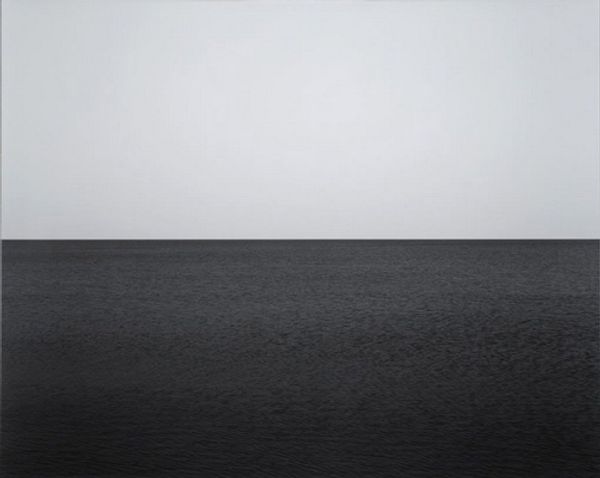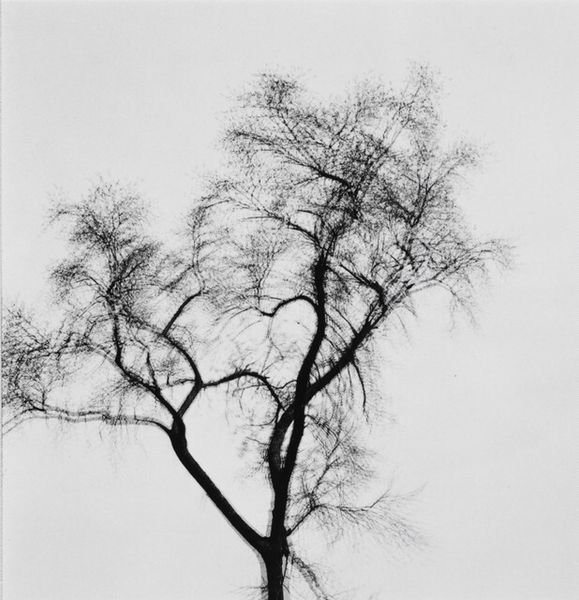
photography
#
tree
#
sky
#
landscape
#
photography
#
abstraction
#
water
Copyright: David Burdeny,Fair Use
Curator: David Burdeny's photograph, "Orange Leaves, Ariake Sea, Japan," captured in 2010, offers us a glimpse into a world where water and sky seem to merge into one. What's your immediate reaction to it? Editor: An overwhelming sense of calm. The muted palette, almost monochromatic, evokes a feeling of profound stillness. The trees emerging from the water give a stark yet peaceful ambiance. Curator: I agree completely. Burdeny's ability to distill the landscape to its bare essence is remarkable. The composition relies heavily on the rule of thirds, drawing your eye to the subtle variations in tone and texture. Editor: Absolutely. There is an undeniable formal elegance in the composition, right? The trees function as almost calligraphic elements, placed within a serene, nearly abstract field. Semiotically, the sparseness invites a meditation on absence, loss, or even impermanence. What do you feel? Curator: You’ve hit upon something crucial. It's the impermanence that strikes me most poignantly. These trees, half-submerged, seem to be in a perpetual state of transition, mirroring the transient nature of life itself. A visual haiku about accepting what is. Editor: It seems Burdeny’s intentional simplification creates something profound—a quiet statement on nature and time through the minimalist perspective, while, at the same time, evoking the rich traditions of Japanese ink painting, don't you think? Curator: Precisely, the work invites reflection and allows you to pause from the constant noise. Thank you for walking me through your visual semiotic lens; you shed more light on this artwork than I could imagine. Editor: My pleasure, and in exchange you have shown me its deeply resonant, emotional depth, beyond pure formal arrangement. Now it seems, in all it's sparseness, that a rich emotionality abounds.
Comments
No comments
Be the first to comment and join the conversation on the ultimate creative platform.
